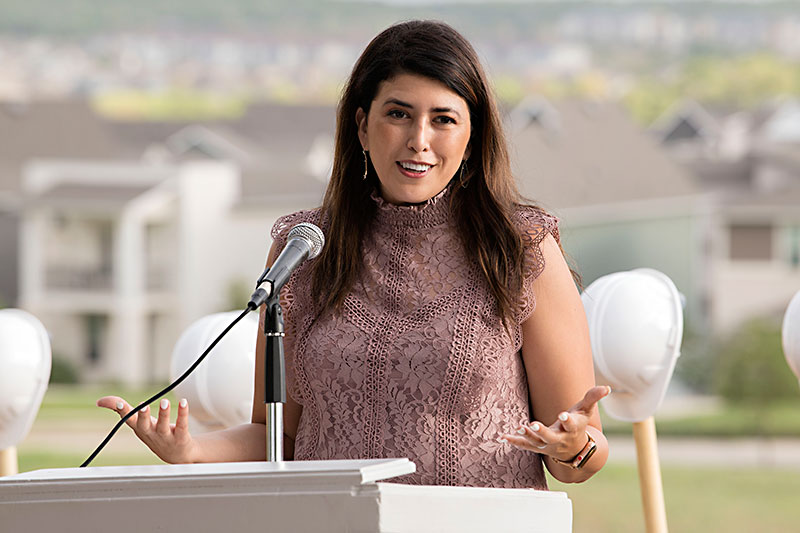City Base Wage Jumps to $20/Hour for Next Fiscal Year
Council approves increase for city workers
By Austin Sanders, Fri., Aug. 26, 2022
After two long days of deliberation, City Council gave final approval late in the evening Thursday, Aug. 18, to a $5 billion "all funds" fiscal year 2023 budget. The General Fund, which is where your sales and property taxes go, accounts for about $1.3 billion of that budget, with more than 60% of that amount earmarked for public safety.
Council approved a property tax rate of 46.27 cents per $100 of taxable value, which is right at the 3.5% maximum increase in total property tax revenue (the "revenue cap") allowed under state law and about 8 cents lower than the current year's tax rate. The new tax rate on its own will not increase tax bills for homeowners, but combined with rate and fee increases for city services, the owner of a median-price home in Austin ($453,727) will pay an additional $169.68 in taxes and fees per year.
The biggest change Council made to the budget proposed by City Manager Spencer Cronk a month ago was to further increase the base wage offered to city workers. Cronk's budget would have boosted the city minimum wage from $15 per hour (though no current city workers still earn that base wage) to $18 per hour, along with offering a 4% cost-of-living adjustment to everyone higher up the pay scales.
But a broad coalition of progressive advocates, ranging from labor groups to criminal justice reformers, were campaigning for an increase to $22 per hour. Council met them in the middle; Council Member Vanessa Fuentes carried a budget amendment that allocates $7 million toward increasing the city minimum wage to $20 per hour (while maintaining the 4% COLA for everyone else). The amendment also requires staff to craft a plan for annual pay increases that will boost the minimum wage to $22 per hour as quickly as possible.
"A $20/hr living wage will provide Austinites with reliable and high-quality city services while also enabling our public employees to live in the city they serve," Fuentes wrote in a statement following Council's adoption of the budget. "High-quality city services" is a bit of a veiled reference to the dire staffing crisis facing practically every city department. Data from May shows a roughly 16% vacancy rate across all departments – about 2.5% of which had been vacant for more than a year.
The minimum wage hike, which will be permanent and take effect Oct. 1 when the new fiscal year begins, is an attempt to boost city recruitment efforts and decrease those vacancy rates. But, as staff indicated during the two-day Council meeting, the $7 million will be enough to raise the minimum wage and cover the 4% COLA, but may not be enough to further increase pay for employees who earn $20 per hour or more.
The city's Human Resources Department refers to this as "pay compression," which is what happens when pay at the lower end of the pay scale increases without a commensurate increase to the higher ends of the pay scale. As HRD Director Joya Hayes explained to CMs earlier this week, the "living wage" budget amendment will create a situation where crossing guards will be earning nearly as much as those positions that were already being marketed at $20 per hour (i.e., 33% above the prior base wage).
While higher starting pay will help with recruitment, pay compression will have a negative impact on employee retention, with which the city also struggles. So, HRD is going to work with department heads across the city to see how they can address pay compression. For some departments, like Parks and Recreation, they'll be able to use some of their share of the $7 million to increase pay for more employees, because many PARD jobs are seasonal but are funded for the full fiscal year. Every department will be able to use some of their "vacancy savings" – i.e., the money left over in their budgets from unfilled-but-funded positions – to address compression. After all that accounting is completed, HRD will work with the Budget Office to see how much of the $7 million is left; if more funding is needed, staff will return to Council with a midyear budget amendment designed to close the funding gap, whatever it may be, to resolve pay compression.
But what about sworn public safety employees who staff the city's first responder agencies? Police and firefighters haven't gotten any raises yet; their unions are still in contract negotiations with the city over pay and benefits. (Medics have agreed to a new one-year contract; see below.) That poses more challenges to the city's HR and budget professionals. It's more than possible that, midyear, Council will need to adjust its budget thinking to accommodate more expensive contracts.
And if you've kept up with budget coverage at the daily, you've likely already read the shocking headline – CMs voted to give themselves a 40% raise. (The vote was 8-3, with Fuentes, Mackenzie Kelly, and Paige Ellis – who is up for reelection this year, the other two in 2024 – in opposition.) Scandalous! Except that CM salaries haven't increased (aside from the same COLAs that all city employees received) since 2006. Even with the raise, CMs will earn less than Travis County commissioners.
A market study conducted by HRD and Gallagher Benefit Services found that Council staffers make about 14% less than their peers (San Antonio, Denver, and Phoenix were among the 13 benchmarked cities). The new wage scale will place Austin staffers at 5% above the market average; since that would mean CM's chiefs of staff would earn more than their bosses, HRD proposed boosting CM pay, too, to 10% above that of the highest-paid staffers.
The end result is a new CM salary of $116,688 and mayoral salary of $134,191 annually (increased from $83,158.40 and $97,656, respectively; Steve Adler has not drawn a salary his entire time in office, instead using his foregone pay to increase the mayor's office staff). Council also voted to allow CMs to participate in the city's retirement system for the first time. All told, the compensation and benefits increases for Council offices will cost the city about $395,000 per year, or .008% of the entire budget they oversee.
Other budget highlights include a total of $8 million in one-time funding that can be used for rental assistance; $200,000 of that will be set aside to provide inclement weather shelter to the city's unhoused population (the total was increased by $3 million via an amendment from CM Chito Vela); $17.8 million to complete construction of the Goodnight Ranch Fire/EMS station in far Southeast Austin; $1.2 million to expand a life-saving field treatment program deployed by EMS known as Whole Blood, which allows medics to perform blood transfusions in the field; and a total of $79 million invested in a variety of programs and services meant to reduce homelessness in Austin.
Council meets next Thursday, Sept. 1; see “Public Notice” for a brief preview.
Got something to say on the subject? Send a letter to the editor.









